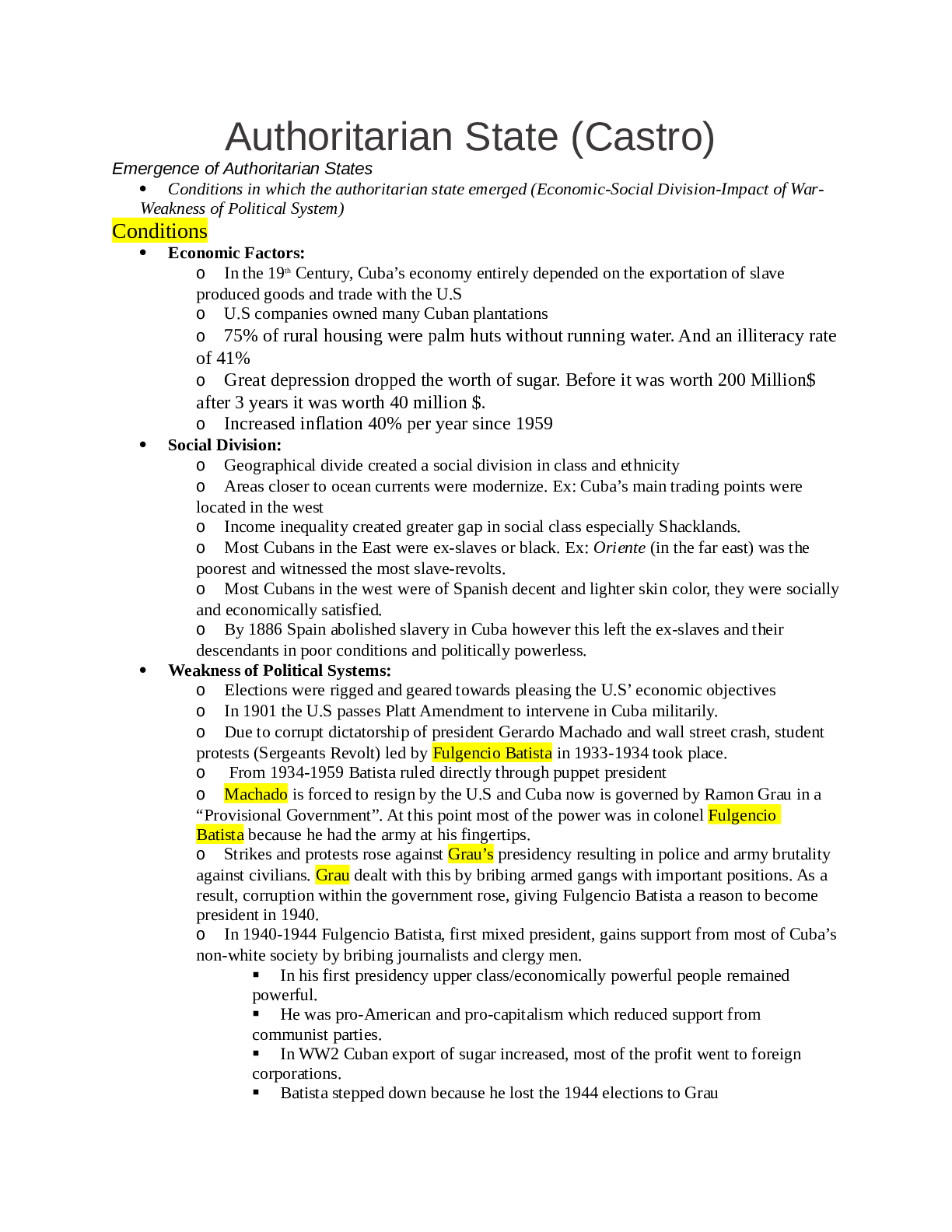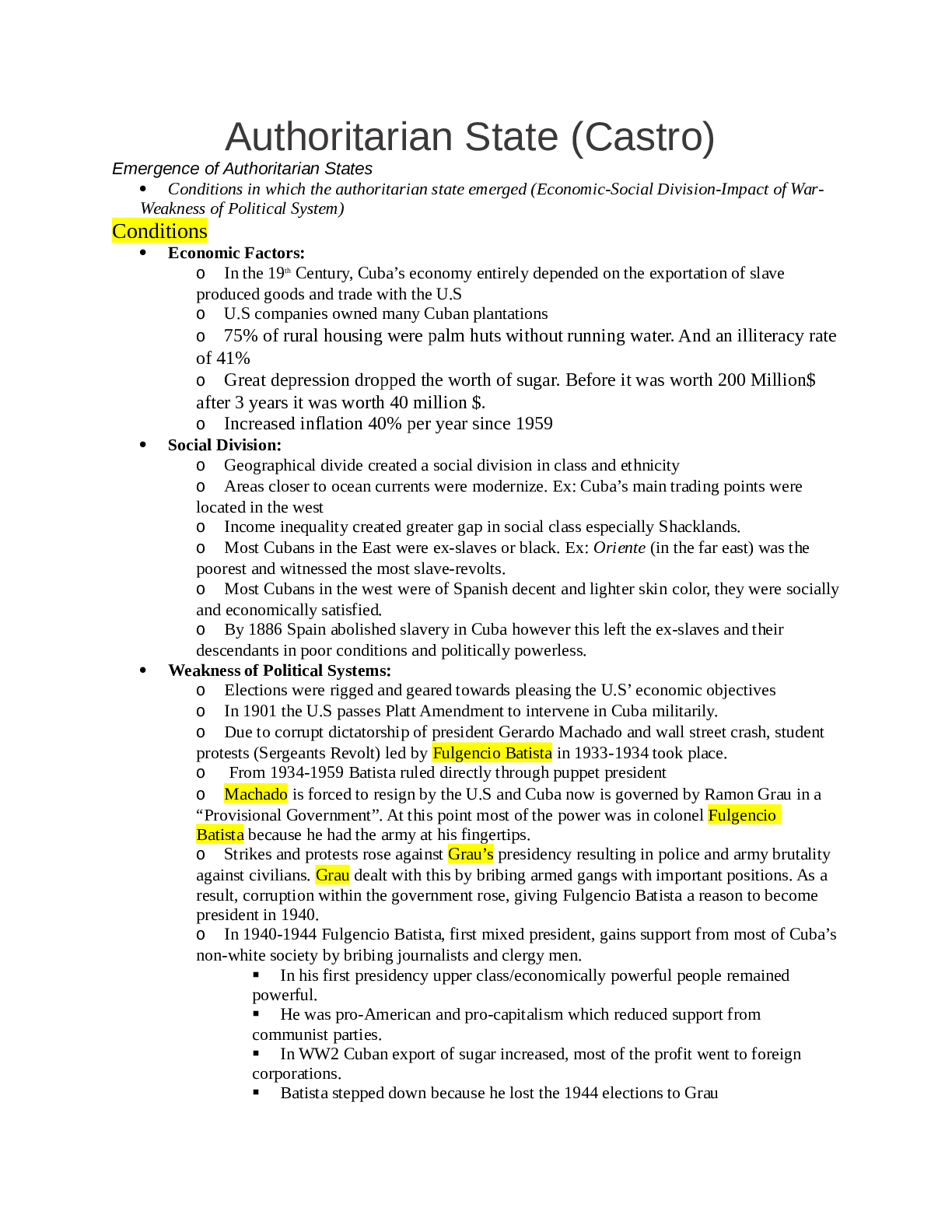Authoritarian State (Castro) History Notes
Course
Performing Arts
Subject
Chemistry
Category
Study Notes
Pages
43
Uploaded By
ATIPROS
Preview 5 out of 43 Pages


Download all 43 pages for $ 14.00
Reviews (0)
$14.00
